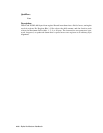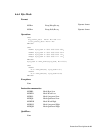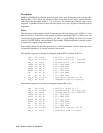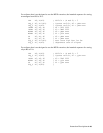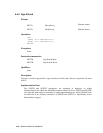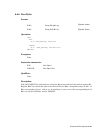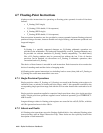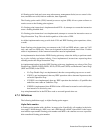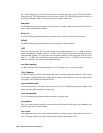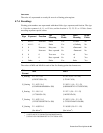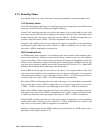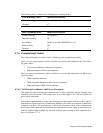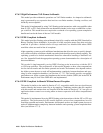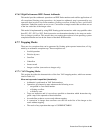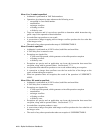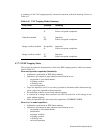4–64 Alpha Architecture Handbook
For VAX floating-point, finites do not include reserved operands or dirty zeros (this differs
from the usual VAX interpretation of dirty zeros as finite). For IEEE floating-point, finites do
not include infinites, NaNs, or denormals, but do include minus zero.
denormal
An IEEE floating-point bit pattern that represents a number whose magnitude lies between
zero and the smallest finite number.
dirty zero
A VAX floating-point bit pattern that represents a zero value, but not in true-zero form.
infinity
An IEEE floating-point bit pattern that represents plus or minus infinity.
LSB
The least significant bit. For a positive finite representable number A, A + 1 LSB is the next
larger representative number, and A + ½ LSB is exactly halfway between A and the next larger
representable number. For a positive representable number A whose fraction field is not all
zeros, A – 1 LSB is the next smaller representable number, and A – ½ LSB is exactly halfway
between A and the next smaller representable number.
non-finite number
An IEEE infinity, NaN, denormal number, or a VAX dirty zero or reserved operand.
Not-a-Number
An IEEE floating-point bit pattern that represents something other than a number. This comes
in two forms: signaling NaNs (for Alpha, those with an initial fraction bit of 0) and quiet NaNs
(for Alpha , those with initial fraction bit of 1).
representable result
A real number that can be represented exactly as a VAX or IEEE floating-point number, with
finite precision and bounded exponent range.
reserved operand
A VAX floating-point bit pattern that represents an illegal value.
trap shadow
The set of instructions potentially executed after an instruction that signals an arithmetic trap
but before the trap is actually taken.
true result
The mathematically correct result of an operation, assuming that the input operand values are
exact. The true result is typically rounded to the nearest representable result.



